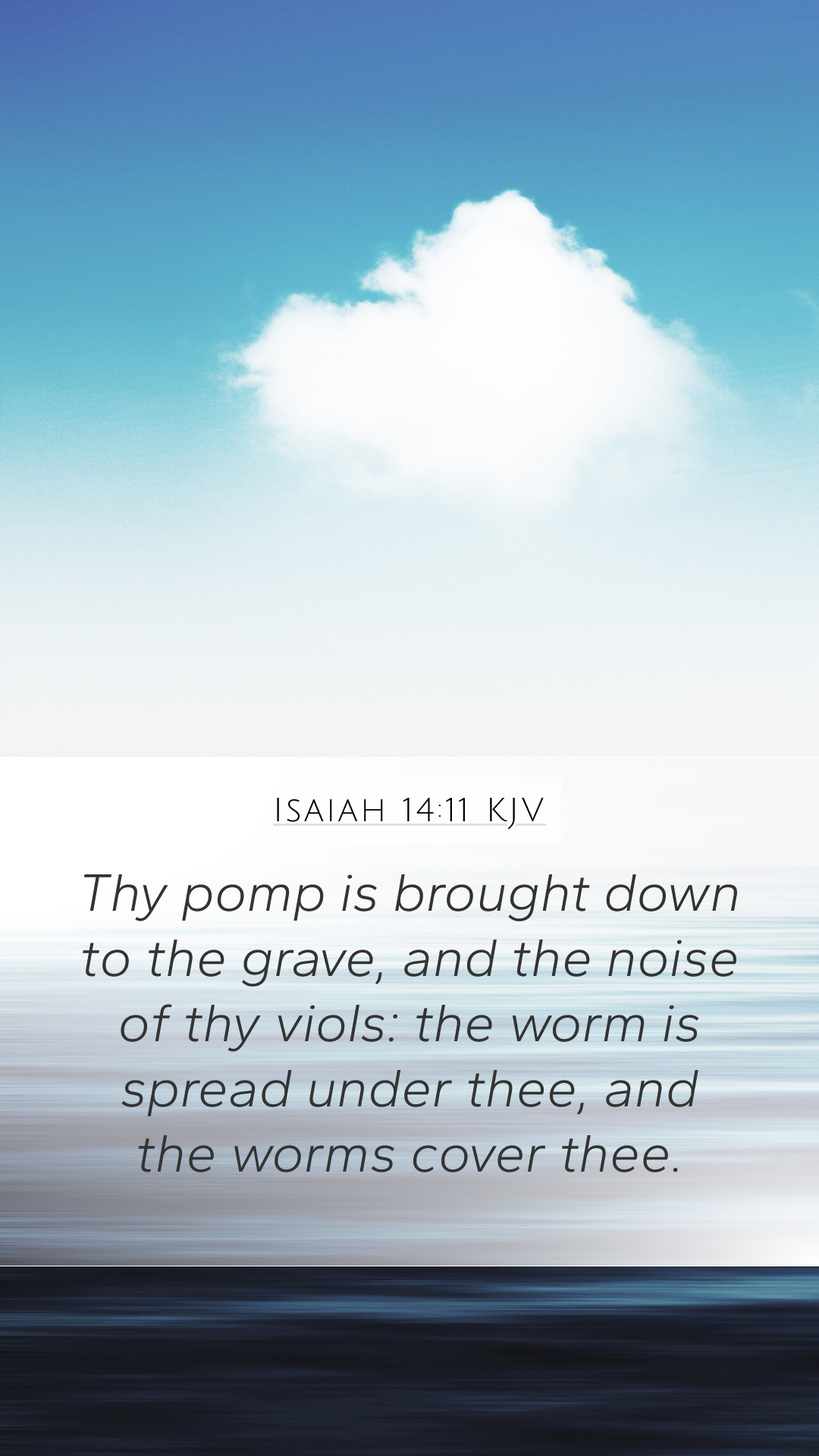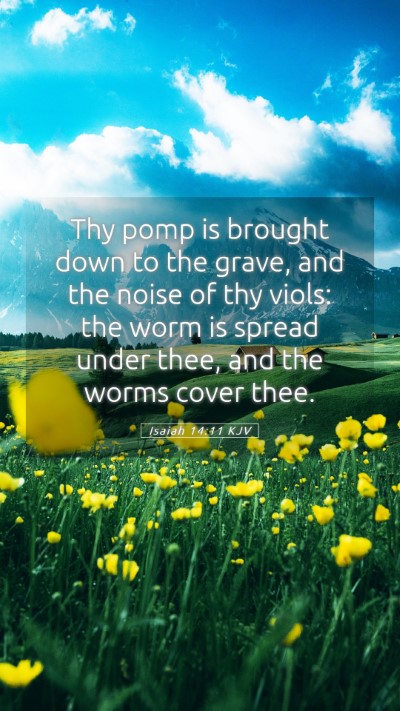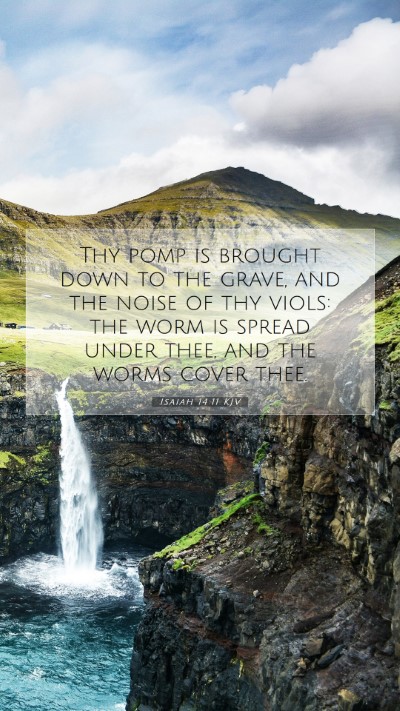Understanding Isaiah 14:11
Isaiah 14:11 states: Your pomp is brought down to Sheol, and the sound of your stringed instruments; the maggot is spread under you, and worms cover you.
This verse reflects the ultimate downfall and humiliation of those who have exalted themselves, drawing a vivid picture of the grave and the decay that follows death. The context of this passage is primarily centered around the King of Babylon, symbolizing pride and adversarial power against God.
Insights from Public Domain Commentaries
Combining insights from Matthew Henry, Albert Barnes, and Adam Clarke, we delve into a comprehensive understanding of this verse:
1. The Context of God's Judgment
Commentators emphasize that this verse occurs within a wider context of God’s declaration of judgment against Babylon, representing all nations or leaders that oppose Him.
- Matthew Henry notes that the fall of Babylon symbolizes the inevitable outcome of pride and rebellion against God, leading to ultimate destruction.
- Albert Barnes elaborates on the metaphorical representation of pomp and musical instruments, highlighting that worldly grandeur and glory will not shield one from divine judgment.
- Adam Clarke provides historical context, explaining that Babylon was seen as the epitome of pride and tyranny, and its fall serves as a warning to other nations.
2. The Imagery of Death and Decay
The imagery of maggots and worms covering the fallen leader serves as a powerful reminder of mortality and the fate that awaits those who place their confidence in earthly power.
- Matthew Henry interprets this imagery as illustrating the end of all human glory and the base nature to which all must eventually return.
- Albert Barnes emphasizes that this verse communicates the truth that, in the end, earthly achievements provide no protection from death.
- Adam Clarke highlights the cultural understanding of Sheol as a place of darkness where there is no escape from the consequences of one’s actions in life.
3. Theological Significance
The theological implications of this verse extend to discussions about pride, judgment, and the nature of God’s sovereignty over nations and leaders.
- Pride Before Destruction: The verse reaffirms the biblical principle that pride precedes a fall (Proverbs 16:18).
- God’s Sovereignty: It illustrates God's ultimate authority and the temporary nature of human power, reinforcing His dominion over creation.
- Hope for the Oppressed: For the oppressed, this serves as a message of hope, affirming that tyranny will not prevail forever.
Cross References
Isaiah 14:11 can be cross-referenced with the following verses to enrich one’s understanding:
- Proverbs 16:18: "Pride goes before destruction, and a haughty spirit before a fall."
- Revelation 20:10: "And the devil who had deceived them was thrown into the lake of fire and sulfur, where the beast and the false prophet were, and they will be tormented day and night forever and ever."
- Psalms 37:20: "But the wicked shall perish, and the enemies of the Lord are like the glory of the pastures; they vanish—like smoke they vanish away."
Conclusion
In summary, Isaiah 14:11 serves as a powerful reminder of the repercussions of pride and rebellion against God. Through this verse, we gain insight into the nature of God's judgment and the transient nature of human glory. This verse underscores significant theological themes and connects to various other Scripture passages, enhancing our overall understanding of biblical teachings.
Further Study Recommendations
For those interested in a deeper examination of similar themes, consider these Bible study resources:
- Bible Study Guides: Explore guides that cover themes of pride and judgment throughout Scripture.
- Online Bible Study Courses: Enroll in courses focused on prophetic literature and biblical exegesis.
- Bible Study Groups: Join a local or online group to engage with fellow believers in discussions about Scripture interpretation and applications to daily life.


